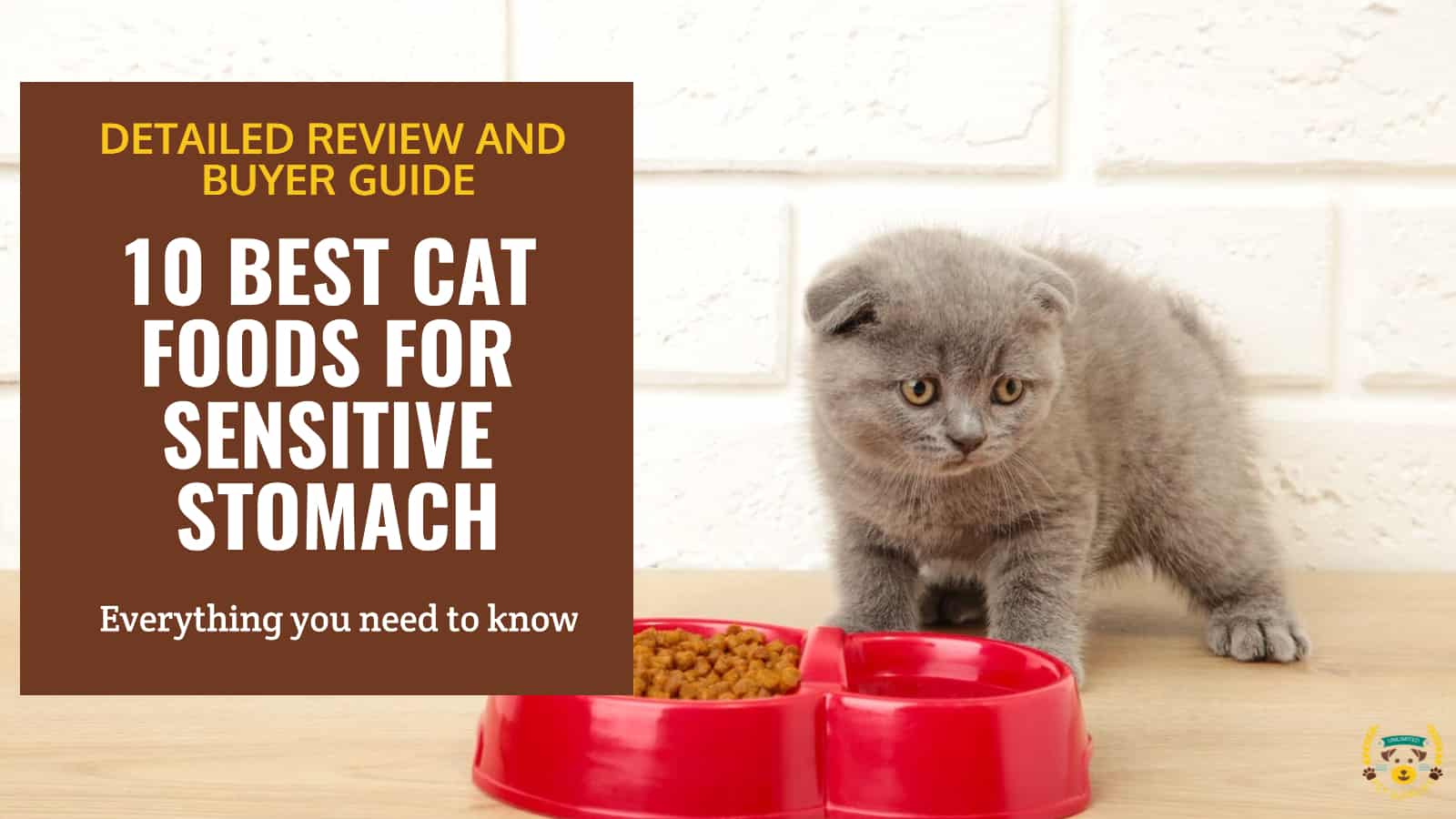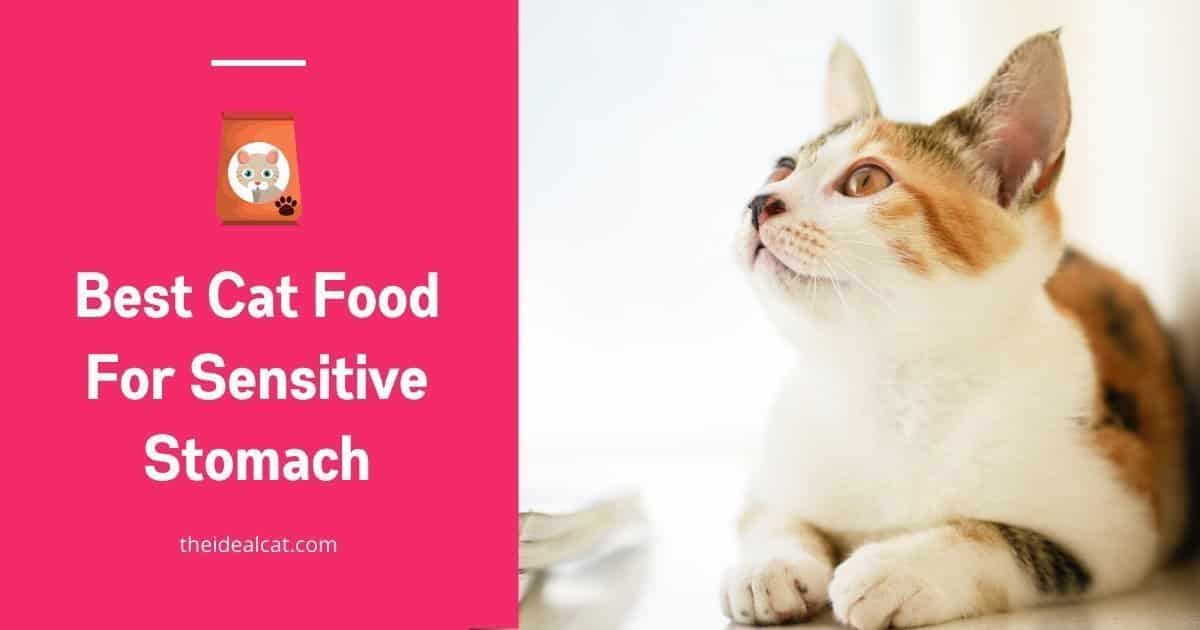
Best Food for Cats with Sensitive Stomachs and Diarrhea
Dealing with a cat that has a sensitive stomach and diarrhea can be a stressful experience for any cat owner. The discomfort and digestive issues can significantly impact your feline friend’s quality of life. Selecting the right food is crucial to alleviate these issues and promote a healthy digestive system. This comprehensive guide will delve into the best food options for cats with sensitive stomachs and diarrhea, offering insights into ingredients, dietary considerations, and expert recommendations.
Understanding Sensitive Stomachs and Diarrhea in Cats
Before delving into the best food choices, it’s important to understand the underlying causes of sensitive stomachs and diarrhea in cats.
Common Causes of Sensitive Stomachs in Cats
Several factors can contribute to sensitive stomachs in cats:
- Food Allergies or Intolerances: Just like humans, cats can develop allergies or intolerances to certain ingredients commonly found in cat food, such as beef, dairy, wheat, or artificial additives.
- Inflammatory Bowel Disease (IBD): IBD is a chronic inflammatory condition affecting the gastrointestinal tract. It can cause various symptoms, including vomiting, diarrhea, and weight loss.
- Parasitic Infections: Intestinal parasites, such as worms or protozoa, can irritate the digestive system, leading to diarrhea and other gastrointestinal issues.
- Bacterial Infections: Bacterial overgrowth or infections in the gut can disrupt the balance of beneficial bacteria and cause digestive upset.
- Dietary Indiscretion: Cats sometimes eat things they shouldn’t, such as garbage, spoiled food, or foreign objects. This can lead to digestive upset and diarrhea.
- Stress: Stress can affect a cat’s digestive system, leading to changes in appetite and bowel movements.
Symptoms of Sensitive Stomachs and Diarrhea in Cats
Recognizing the symptoms of sensitive stomachs and diarrhea in cats is crucial for early intervention. Common signs include:
- Vomiting: Frequent or occasional vomiting, especially after meals.
- Diarrhea: Loose or watery stools, often with increased frequency.
- Changes in Appetite: Decreased appetite or refusal to eat.
- Weight Loss: Unexplained weight loss, despite normal food intake.
- Excessive Gas: Increased flatulence or bloating.
- Abdominal Pain: Signs of discomfort or pain in the abdomen.
- Lethargy: Decreased energy levels or reluctance to play.
- Dehydration: Signs of dehydration, such as sunken eyes or dry gums.
If you observe any of these symptoms in your cat, it’s important to consult with your veterinarian for proper diagnosis and treatment.
Key Considerations When Choosing Cat Food for Sensitive Stomachs
Selecting the right cat food is crucial for managing sensitive stomachs and diarrhea. Here are some key considerations to keep in mind:
1. Limited Ingredient Diets
Limited ingredient diets (LIDs) are formulated with a minimal number of ingredients, typically one protein source and one carbohydrate source. This can help reduce the risk of allergic reactions or sensitivities to common allergens.
Benefits of Limited Ingredient Diets:
- Minimize exposure to potential allergens.
- Easier to identify specific food sensitivities.
- Reduce digestive upset and inflammation.
Common Ingredients in Limited Ingredient Diets:
- Protein Sources: Duck, salmon, lamb, rabbit, or venison.
- Carbohydrate Sources: Potato, sweet potato, or green peas.
2. Novel Protein Sources
Novel protein sources are proteins that your cat has not been previously exposed to. This can help prevent allergic reactions or sensitivities that may have developed to common protein sources like chicken or beef.
Examples of Novel Protein Sources:
- Duck
- Salmon
- Lamb
- Rabbit
- Venison
3. Highly Digestible Ingredients
Choosing cat food with highly digestible ingredients is essential for cats with sensitive stomachs. These ingredients are easily broken down and absorbed by the body, reducing the strain on the digestive system.
Highly Digestible Ingredients to Look For:
- Hydrolyzed Proteins: Proteins that have been broken down into smaller pieces, making them easier to digest.
- Prebiotics and Probiotics: These promote a healthy gut microbiome and improve digestion.
- Fiber: Moderate amounts of fiber can help regulate bowel movements and prevent diarrhea.
4. Grain-Free Formulas
While not always necessary, grain-free formulas can be beneficial for cats with grain sensitivities or allergies. Some cats may have difficulty digesting grains like wheat, corn, or soy, leading to digestive upset.
Considerations for Grain-Free Formulas:
- Grain-free does not always mean carbohydrate-free. Look for alternative carbohydrate sources like sweet potatoes or peas.
- Consult with your veterinarian to determine if a grain-free diet is necessary for your cat.
5. Avoid Artificial Additives
Artificial colors, flavors, and preservatives can irritate the digestive system and worsen sensitive stomach symptoms. Choose cat food that is free from these additives.
Ingredients to Avoid:
- Artificial Colors (e.g., Red 40, Yellow 5)
- Artificial Flavors
- Artificial Preservatives (e.g., BHA, BHT, Ethoxyquin)
Best Food Options for Cats with Sensitive Stomachs and Diarrhea
Based on the key considerations mentioned above, here are some of the best food options for cats with sensitive stomachs and diarrhea:
1. Hill’s Prescription Diet i/d Digestive Care
Hill’s Prescription Diet i/d Digestive Care is a veterinary-recommended food formulated specifically for cats with digestive issues. It contains highly digestible ingredients, prebiotics, and omega-3 fatty acids to support a healthy gut and reduce inflammation.
Key Features:
- Highly digestible ingredients
- Prebiotics to support gut health
- Omega-3 fatty acids to reduce inflammation
- Available in both wet and dry formulas
2. Royal Canin Veterinary Diet Gastrointestinal
Royal Canin Veterinary Diet Gastrointestinal is another popular choice among veterinarians for cats with sensitive stomachs. It features highly digestible proteins, prebiotics, and a blend of fibers to promote healthy digestion and stool quality.
Key Features:
- Highly digestible proteins
- Prebiotics to support gut health
- Blend of fibers to promote healthy stool quality
- Available in both wet and dry formulas
3. Purina Pro Plan Veterinary Diets EN Gastroenteric
Purina Pro Plan Veterinary Diets EN Gastroenteric is a specially formulated food designed for cats with gastrointestinal issues. It contains hydrolyzed proteins, prebiotics, and low-fat content to ease digestion and reduce the risk of diarrhea.
Key Features:
- Hydrolyzed proteins for easy digestion
- Prebiotics to support gut health
- Low-fat content to reduce the risk of diarrhea
- Available in both wet and dry formulas
4. Blue Buffalo Basics Limited Ingredient Diet
Blue Buffalo Basics Limited Ingredient Diet is a grain-free option that features a single animal protein source (e.g., duck or salmon) and a single carbohydrate source (e.g., potato or sweet potato). This can help minimize the risk of allergic reactions or sensitivities.
Key Features:
- Limited ingredient formula
- Grain-free
- Single animal protein source
- Available in both wet and dry formulas
5. Wellness Simple Limited Ingredient Diet
Wellness Simple Limited Ingredient Diet is another great option for cats with sensitive stomachs. It features a single animal protein source (e.g., salmon or turkey) and a limited number of other ingredients to minimize potential allergens.
Key Features:
- Limited ingredient formula
- Single animal protein source
- Grain-free option available
- Available in both wet and dry formulas
Tips for Transitioning to a New Cat Food
When transitioning your cat to a new food, it’s important to do so gradually to avoid further digestive upset. Follow these tips for a smooth transition:
- Start Slowly: Mix a small amount of the new food with your cat’s current food.
- Gradually Increase: Over the course of 7-10 days, gradually increase the amount of new food while decreasing the amount of old food.
- Monitor Your Cat: Watch for any signs of digestive upset, such as vomiting or diarrhea. If you notice any issues, slow down the transition or consult with your veterinarian.
- Provide Fresh Water: Ensure your cat has access to fresh water at all times.
Conclusion
Choosing the right food is essential for managing sensitive stomachs and diarrhea in cats. By selecting a limited ingredient diet, novel protein source, highly digestible ingredients, and avoiding artificial additives, you can help alleviate your cat’s symptoms and promote a healthy digestive system. Always consult with your veterinarian before making any changes to your cat’s diet.

